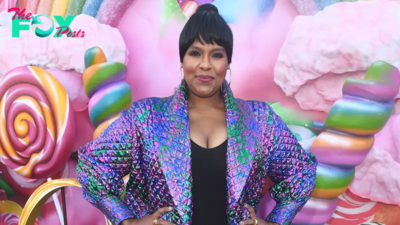Entertainment
How a Room Full of Lifeless Westworld Robots Inspired Charles Yu’s Interior Chinatown
When Charles Yu was a writer for the dystopian sci-fi HBO series Westworld, he went to set one day and saw dozens of naked actors lying on the floor, playing broken shells of automatons waiting to be revived. “They’re literally bodies lying on metallic shelving—and that’s somebody’s job,” Yu remembers thinking. “They're coming here to put on body makeup and lie there naked for hours in a 60-degree environment.”
Witnessing the fringes of a television set and the stark realities of the people who make a living there partially inspired Yu’s novel, Interior Chinatown, which was released in early 2020. The genre-bending metanarrative tells the story of Willis, a “generic Asian man” in the background of a Law & Order-like procedural who longs to break out of his minor and oft-humiliating role. The novel not only skewered TV’s narrow formulas, but also served as a parable for how Asian Americans have long been shunted to the edges of American society. It struck a nerve during the pandemic, and won the National Book Award for Fiction.
The novel’s breakout success led to Yu receiving an opportunity he had not considered: Hulu calling and asking if he would be interested in turning Interior Chinatown into an actual television series. Such an adaptation would necessitate navigating a head-spinning stack of realities and mediums: to create a police procedural inside of a genre-busting action-dramedy, based on a novel written in the style of a TV screenplay. But Yu jumped at the opportunity, and signed on to write the adaptation and serve as the showrunner. “Going in, I should have been more mindful of the fact that literally everyone was like, this is going to be really hard,” Yu tells TIME. “I didn't fully understand how hard it would be to crack it until I started doing it.”
Read More: What It’s Like to Never Ever See Yourself on TV
Four years later, the TV adaptation of Interior Chinatown arrives on Hulu on Nov. 19, to positive reviews. Jimmy O. Yang (Love Hard) stars as Willis, alongside Chloe Bennet (Agents of S.H.I.E.L.D.) and Ronny Cheing (The Daily Show), as they attempt to unshackle themselves from their designated societal roles and track down Willis’ long-lost brother. Taika Waititi (Jojo Rabbit, Thor: Ragnarok) executive-produced the show and directed the pilot.
Interior Chinatown is a bit of a paradox: it’s a show whose primary conceit is that Asian-American voices remain on the periphery, while centering an Asian-American everyman hero. This dynamic is not lost on Yu. “I got to make this show, and am an incredibly lucky, privileged person to get to do this,” he says. “But that doesn't mean I don't want to tell the story of most people who are not nearly as lucky, including my own parents and a lot of recent immigrants as well.”
In an interview, Yu talked about the state of Asian American representation, recent backlash against diversity initiatives, and the rise of AI. Here are excerpts of the conversation.
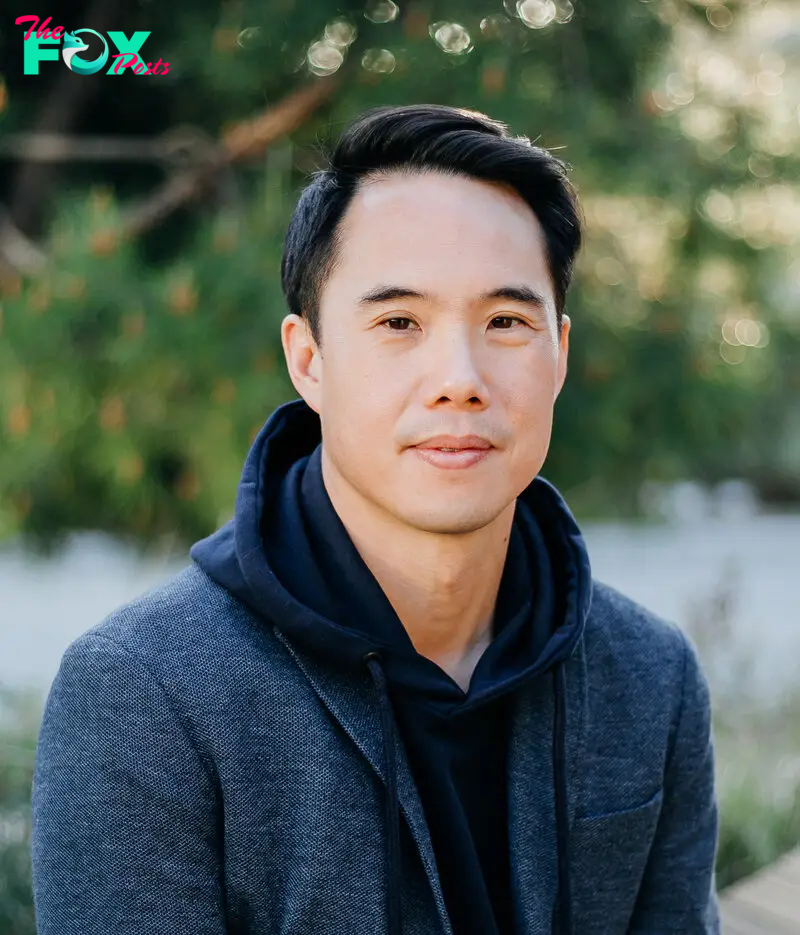
TIME: Interior Chinatown was published in early 2020. How did everything that’s happened since impact how you wrote the TV adaptation?
Yu: We started a writers room over Zoom in 2022, and it was really on our minds how the world in which we’d all see each other again would be so different: on the heels of George Floyd, January 6, the wave of anti-Asian sentiment. On one level, the novel is about how Asians are invisible in the American public imagination, which felt more relevant than ever. But I also felt like it could be about so much more, and that it needed to be.
What advice do you have for anyone like Willis, who longs to become the main character of their own story?
Don’t be afraid of looking dumb. I’m 48, and it wasn’t until I became a dad and very cringey that I realized that is something I wish I had been willing to do when I was 28. I was terrified at work: of getting up and talking in front of even five people. So it sounds like such a platitude, but if you’re gonna break out of your role, it starts with you believing you can.
How much did writing for HBO’s Westworld shape Interior Chinatown?
In so many ways. The main thing was that having seen the inside workings of making a TV show, it made me really excited to then start to try to take it apart or poke at it from the inside. It inspired the idea of seeing the edge of the set: The story and then the people behind the story. It gave me that idea that either you’re very, very visible, or you’re completely invisible.
Being on set was surreal. There’s this sense that a lot of the robots are NPCs [non-playable characters], and you may never encounter most of them. Their existence kind of spun me out. What if you’re just a robot who’s off in some dusty side quest, and nobody does your side quest? What is your life like?
Some of the strongest parts of the novel are the characters’ interior thoughts and extensive histories, which they don’t speak out loud. Was it challenging to translate that for TV?
Yeah, that was the single biggest challenge. In a novel you can slip into someone’s consciousness. Gifted filMMAkers know how to create subjectivity and interiority, to tell a story that has forward movement but can live in your thoughts and the intimacy of relationships. I learned how to better use silence and negative space.
What did you learn from Taika Waititi, who served as an EP and directed the pilot?
He can take a script and loosen up the connective tissue, to both soften and scuff it up. He’s looking for both visual and emotional nuance: something that’s less polished but much more human.
One of the big conflicts in the book is Willis grappling with whether to climb his way up through an unjust system stacked against him—in which the most he can ever achieve is “Kung Fu Guy”—or to try to rebel from the system itself. Having worked your way up through Hollywood, can you relate?
Oh, that’s a little bit spicy. I’ll try not to duck it. Yes. I’m a rule follower. I started as a good kid of immigrants, who wore a heavy coat of guilt and responsibility: like, ‘Don’t waste our effort.’ I felt like the way I was going to get ahead was working really hard, figuring out the rules of a system, and playing within those rules.
But then I hit a bunch of walls, eventually. And that's what we see Willis do. Some of the walls are visible and some are not, and a lot of them are internal. I'm not even talking about discrimination, necessarily. I mean, I got to make this show, and am an incredibly lucky, privileged person to get to do this. But that doesn't mean I don't want to tell the story of most people who are not nearly as lucky, including my own parents and a lot of recent immigrants as well.
So the parallel is: At some point, you hit the limit of what the rules are going to allow you to to get to, and you have to try things that are scary. There is resistance. No single role is going to define a whole person. That's what I think the show is ultimately about, for Willis and the other characters: trying on various roles that approximate you but don't define the totality of what you are.
In 2020, you wrote an essay for TIME about the lack of Asian-American representation on screen. Has anything changed?
There has been noticeable progress, at least from a Hollywood perspective, in the variety and specificity of stories being told. Before, you could list the three Asian things there had been in the last 10 years. Now, there’s kind of too many [to name].
The question is, what do we do with more visibility? What do we do with doors that are now open, that weren’t for a long time?
Amid Donald Trump’s re-election, what do you make of the growing backlash against diversity and inclusion efforts?
Up front, it is important to hear a diversity of voices. But I feel like what I don’t hear in the conversation is empathy, and I include that from my side. I don’t hear a nuanced discussion of why a particular story matters—and I start to hear that hardening into a sort of assumed dogma. Nobody likes to be told that something is important for its own sake.
Now, it’s not some complicated conversation. You can grow up not reading anything about Native Americans or narratives from Black Americans, or not learning about how long Asian Americans have been part of the country. That is a huge problem, because it's not reality.
But it’s important for us to not devalue the perspective of people who have totally different value systems. The whole point of asking people to read marginalized narratives is so they’ll see the human stories of the people telling them. But that has to go both ways. ‘White guy’ as an epithet is weird to me. I feel like I hear it all the time, and I'm like, ‘Why aren't we talking as if everyone's perspective matters, whether or not they look like us?’
Having dealt with AI on Westworld, what do you make of its recent real-world advancements?
It’s weird to have worked on something less than 10 years ago and see that it’s not so sci-fi. I totally believe an AI could write a better rom-com or buddy comedy than I could. But there’s people who have something it’ll be harder to capture, and there’s something magical about that. I don’t think there’s an AI Taika Waititi, for instance.
-
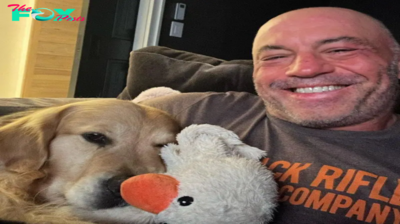
 Entertainment4h ago
Entertainment4h agoHighest-Paid Podcasters in the World: Joe Rogan, Bill Simmons and More
-
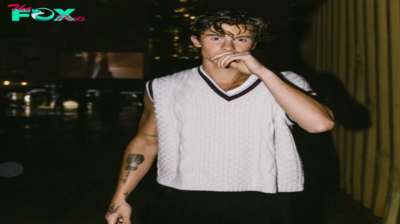
 Entertainment4h ago
Entertainment4h agoFrom Camila Cabello to Sabrina Carpenter, Look at Shawn Mendes’ Dating History
-

 Entertainment9h ago
Entertainment9h agoWorkshop de Comunicação para a TIVIT
-
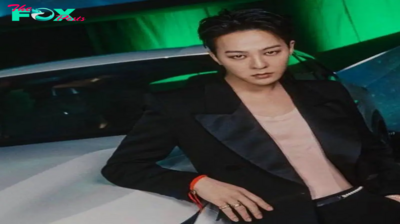
 Entertainment9h ago
Entertainment9h agoA Look at the Dating History and Rumoured Relationships of BIGBANG Star G-Dragon
-
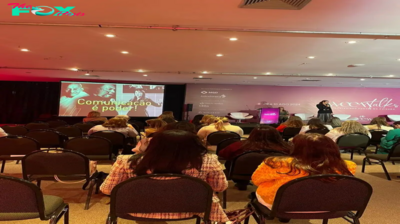
 Entertainment14h ago
Entertainment14h agoPalestra WEEM – Mulheres Médicas e o Poder da Comunicação
-

 Entertainment17h ago
Entertainment17h agoMike and Lauren Sorrentino Introduce Baby No. 3 to Kids in ‘Jersey Shore’ Exclusive Clip
-

 Entertainment1d ago
Entertainment1d agoFace Me and Other Korean Medical Crime Shows That are Must Watch
-
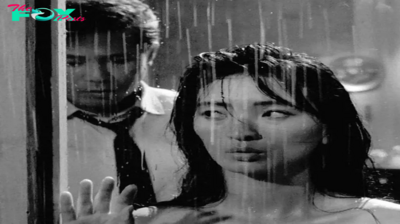
 Entertainment1d ago
Entertainment1d agoClassic Korean Movies Like Piagol to Add to Your Watch List
